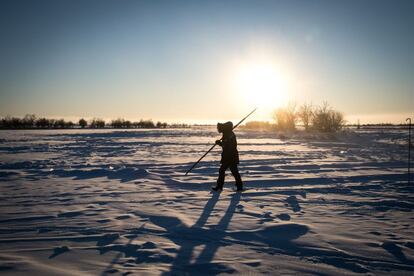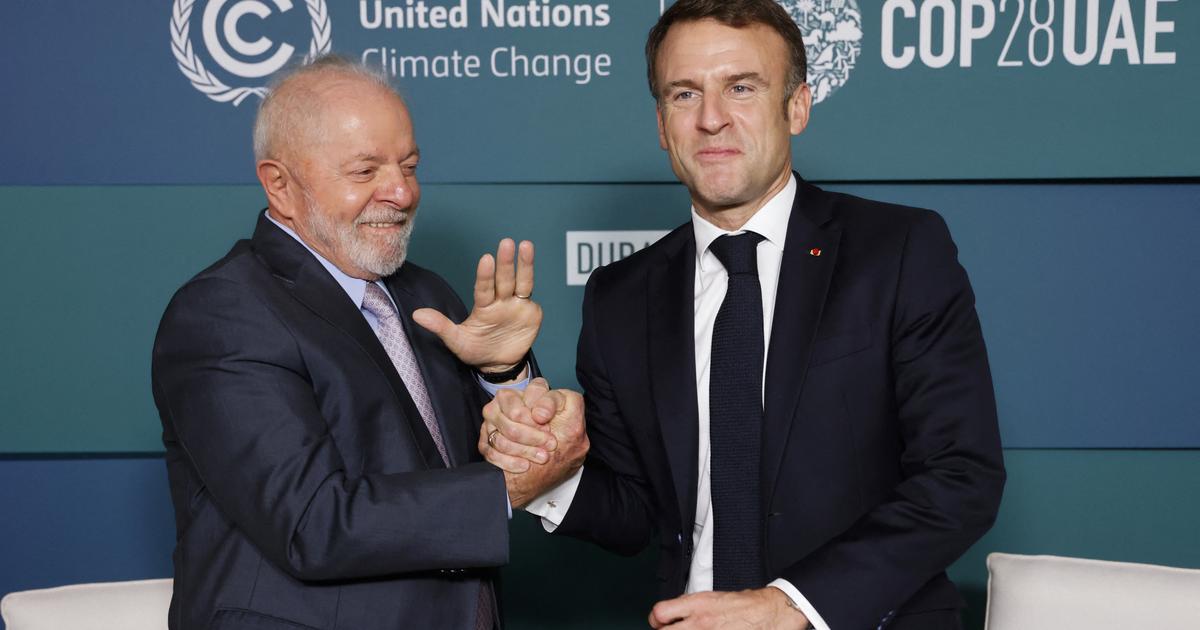Ryszard Kapuściński said in
Empire
that Russia is "an immense country inhabited by a people to which for centuries it has held together a life-giving idea: imperial ambition." An elusive behemoth, a power without which the history of Europe - and the world - of the 19th and 20th centuries cannot be understood, its determination to remain in the fray in the 21st has given it a murky profile. Its neighbors along the 60,932-kilometer border with 14 countries (the largest in the world, along with China) look at this geographic giant, this receptacle of power and culture with fascination, concern and fear. Perhaps that is why so much literature about Russia is generated outside of Russia. In recent months, three solid pieces of evidence of this tradition have come together in Spanish bookstores, three very different essays, but capable of searching for fascinating poetry and stories in a reality that is far from being pleasant.
Kolimá, an amazing journey along the Highway of Human Bones
The travel writer Sophy Roberts does not know how to play the piano, a detail that did not prevent her from launching after the history of some of these instruments lost in a dark past with an idea: "What is missing can tell you more about a country than what remains" .
The commission that gives rise to the book arises in a Mongolian nomadic store, sheltered from vodka, near Karakorum, the historical capital of the empire of Genghis Khan, next to the Siberian border.
There, a German straight out of
The Heart of Darkness
, a kind of Kurtz before Kurtz, entrusts Roberts to find a piano that suits the playing of the virtuous Mongolian Odgerel Sampilnorov.
The result of the odyssey that begins then is recounted in
The Last Pianos of Siberia
(Seix Barral), a book about a search, about the people who live in one of the most punished corners of the world and about the passion that keeps them alive.
Oy settlement, 70 kilometers south of Yakutia, Siberia.MLADEN ANTONOV / AFP via Getty Images
There comes a time when it doesn't matter whether or not you find the pianos whose trail you're after. As he enters the Siberian vastness, he loses perspective and the story gains beauty. Through the love of music of the prisoners who built the 501 railroad across the Arctic, Roberts tells us how they raised their art above the frozen bogs, and history tells us more about the Gulag than many thoughtful treatises. The same goes for her trip to the Ipatiev house, where the Romanovs were executed, which the author uses to tell us about empire, memory, shame and oblivion. Because this is also a story full of enormous silences and extraordinary adventures. Like when he arrives in the sandy Venice of Kiajta, where he searches for a C. Bechstein from 1874 with the help of Tsogt,a Paris-educated Mongolian opera singer and skilled archery. Or when you meet the citizens of a town who have bought a piano with a collection and are keeping it in optimum humidity conditions with jars of butter and damp silk handkerchiefs. Because the Russian is a people who love music like few others. Siberia, like Russia, open dimensions that you did not know were there until you step on their territory or open one of these books. I let them find out if it fulfills its mission.they open dimensions that you didn't know were there until you step on their territory or open one of these books. I let them find out if it fulfills its mission.they open dimensions that you didn't know were there until you step on their territory or open one of these books. I let them find out if it fulfills its mission.
There is a phrase by Jacek Hugo-Bader that sums up the fishing ground of wounded pride in which Putin has fished. Says the Polish journalist in
In the valley of paradise
(La Caja Books) while puffing up on vodka with General Vladimir Mikhailovich Dubnik, who cries at his side: “In times, everyone was afraid of them, the whole world. Today a saleswoman in a department store raises her voice to them ”. Great exponent of the Polish school of journalism, Hugo-Bader's style does not leave indifferent. What the Belarusian Nobel Prize winner Svetlana Alexievich achieves with her tape recorder, Hugo-Bader masks it with his agile verb, his annoying questions and his ability to empathize with the interviewees and drink until they knock them down.It is the bet of his journey through the ashes of the Soviet Union in which there is from a curious interview with Vladimir Kalashnikov to a description through various characters of how veterans of the war in Afghanistan joined the ranks of the mafia to flee of the misery and contempt of their own. Chronicles from 1993 to 2001 in which the only debt is the absolute absence of Putin. Hugo-Bader's journalistic drive, which in
Diarios de Kolimá
took him on the road of bones in a shocking story, this time it transports him, for example, to Yamburg, 2,300 kilometers north of Moscow, a closed city - another Soviet specialty - created only for workers of the giant Gazprom .
And here he connects with the extreme territory described by Roberts, infinite tundra that the Russian has always wanted to tame and that he has never tired of inhabiting, despite everything.
Hugo-Bader wants to find, narrate, denounce and that is why he is going to see the effects of the nuclear tests, to portray the drug circuit set up in Central Asia thanks to corruption and neglect or to meet the mothers of the soldiers who disappeared in Chechnya.
Effervescent journalism.
View of Pyongyang, the capital of North Korea.Getty Images / Getty Images
Erika Fatland bets in
La frontera
(Tusquets) for a perspective that, due to its ambition, gives a certain idea of the whole to the three of them. A seasoned traveler, this writer (who already gave proof of her ability in the excellent
Soviet
, also in Tusquets) begins his journey in North Korea (where Russia is investing large amounts to obtain very cheap labor and access to certain minerals) and ends in his native Norway, the only country that borders Russia that has never been invaded by its gigantic neighbor. From the worst dictatorship in the world to one of the most consolidated democracies in an enormous journey that includes places that, until the dissolution of the Soviet Union in 1991, were Russia, modified borders, wounded by open conflicts and with the influence of very Russian power. Present. The conversation with Stanislav Shushkevich, the first head of state of independent Belarus, in an apartment full of physics books or the walk through Vitebsk, the scene of wars,massacres and border shifts are just two examples of a solid original hybrid. "Can you really trust travel literature, literature based simply on memories?" Asks Fatland. This is not the place to answer that. Let's say they are not history books, nor do they need to be. Yes, three brave approaches to a vast world.
THE LAST PIANOS FROM SIBERIA
Author
: Sophy Roberts.
Translation by Ramón Buenaventura.
Editorial
: Seix Barral, 2021.
Format
: 448 pages.
20.90 euros.
SEE IT IN YOUR BOOKSTORE
IN THE VALLEY OF PARADISE
Author
: Jacek Hugo- Bader.
Translation by Ernesto Rubio and Agata Orzeszek.
Publisher
: La Caja Books, 2021.
Format: 432 pages.
24 euros.
LOOK FOR IT IN YOUR BOOKSTORE
BORDER
Author
: Erika Fatland.
Translation by Carmen Freixanet.
Publisher
: Tusquets, 2021.
Format
: 656 pages.
25 euros.
SEE IT IN YOUR BOOKSTORE
You can follow BABELIA on
and
, or sign up here to receive
our weekly newsletter
.









